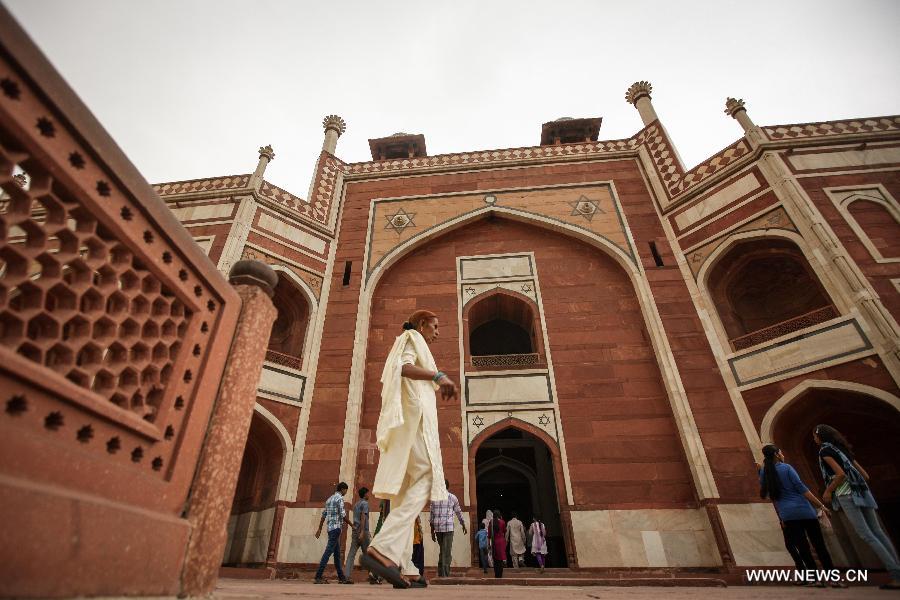
Practical measures are taken to ensure citizens' right to know and right to be heard. With the deepening of reform and the rapid development of information technology, the Chinese people's scope of the right to know has been expanded, and so has the room for them to express their will. With the Regulations on Government Information Disclosure, the country's system for government information disclosure has basically taken shape. In 2003 China began to implement a system of announcement for audit results, and since 2010 governments at all levels have promoted the work of fiscal budget disclosure. In 2012 a total of 97 departments of central government publicly disclosed their budgets, 98 made public their final accounts, and 98 disclosed their expenses on official receptions, vehicles and overseas trips. In 2011 the various central government organs and departments took the initiative to disclose more than 1.49 million pieces of government information; the government organs of the 31 provinces (autonomous regions and municipalities directly under the central government) made public over 28.85 million pieces of government information. In 2011 the various central government organs and departments handled more than 3,000 applications requesting disclosure of relevant government information, and over 70 percent of these applications were granted in accordance with relevant regulations. And the government organs of the 31 provinces (autonomous regions and municipalities directly under the central government) handled in total more than 1.3 million applications from the public requesting the disclosure of related government information, and of these applications over 85 percent were granted in accordance with relevant regulations. The CPC continues to press ahead with making Party affairs public, and has established a spokesperson system for Party committees. In 2012 the Party and government agencies above the provincial level held in total more than 2,200 press conferences. Meanwhile, the Internet has become an important channel for citizens to exercise their rights to know, participate, be heard and supervise, as well as an important means for the government to get to know the public's opinions. To safeguard online information security and protect the legitimate rights and interests of the citizens, legal persons and other organizations, the NPC Standing Committee approved the Decision on Strengthening Online Information Protection in December 2012. By the end of 2012, microblog users in China reached 309 million. According to a survey of China's top ten websites, each day more than three million forum messages and news comments are posted online, while over 200 million messages are posted and forwarded by microbloggers. The people's governments at all levels take concrete measures to implement the Regulations on Petition Through Letters and Visits, continuing to keep unblocked the channels of complaint through letters and visits and standardize such channels, handling such letters and visits conscientiously, and promoting and standardizing the use of green post, online complaint letters and visits, telephone hotlines, the handling of complaint visits via video, and complaint letters and visits handled by proxy, in order to guarantee and protect the people's right of expression. The construction and promotion of a national information system for complaint letters and visits are to be strengthened; the building of a national complaint-handling center is to be accelerated; and a comprehensive platform for rapidly and effectively handling people's complaints is to be built.
New progress is made in human rights protection in the judicial field. To effectively enforce the amended Criminal Procedure Law, the Supreme People's Court and the Supreme People's Procuratorate have jointly issued the Rules on Several Issues Concerning the Enforcement of the Criminal Procedure Law; the Supreme People's Court has worked out the Interpretation Concerning the Application of the Criminal Procedure Law of the People's Republic of China; the Supreme People's Procuratorate has promulgated the revised Rules of Criminal Procedure for the People's Procuratorates (Trial); the Ministry of Public Security has fully amended the Rules of Procedure for Public Security Organs to Handle Criminal Cases. The people's procuratorates have continuously strengthened legal supervision over litigation activities. In 2012 the people's procuratorates gave suggestions for correction on law violations in the investigation of 55,582 cases, lodged 6,196 protests against criminal verdicts that they deemed to be wrong, and put forward suggestions for correction on law violations in criminal proceedings in 11,799 cases. China enforces strict controls over and prudently applies the death penalty. In February 2011 the NPC Standing Committee examined and approved Amendment VIII of the Criminal Law, which removed death penalty from 13 economic and nonviolent crimes, thus reducing the death penalty charges by nearly one fifth. The Amendment also adopted a restrictive regulation for the application of death penalty to offenders aged 75 or above at the time of the trial. In June 2010 the Supreme People's Court and Supreme People's Procuratorate jointly issued the Rules for Reviewing and Judging the Evidence in Handling Death Penalty Cases, adopting more rigorous standards for reviewing and judging the evidence in death penalty cases. The amended Criminal Procedure Law requires that all trials of second instance for death penalty cases be held in public and the supervision over the review of death sentences be tightened. Efforts are made to enlarge the scope of judicial openness and intensify legal supervision. In October 2010 the Supreme People's Court issued the Decision on Designating Model Courts of Open Judicial Practice, which designated 200 courts throughout the country in two batches as "model courts of open judicial practice" and released the criteria for such model courts. In October 2012 the Ministry of Public Security promulgated the Rules for Open Law Enforcement by Public Security Organs, which regularizes in a comprehensive way the open law enforcement by the public security organs, opens up the channels and enriches the ways for open law enforcement.
【11】 【12】 【13】 【14】 【15】 【16】 【17】 【18】 【19】 【20】
【21】 【22】


















 Father arrested for 'torturing' teen daughter
Father arrested for 'torturing' teen daughter


![]()
